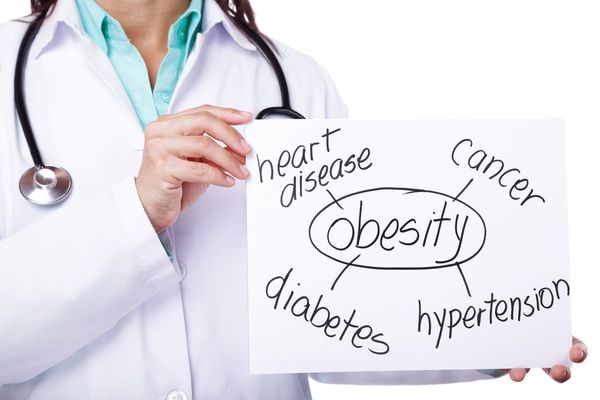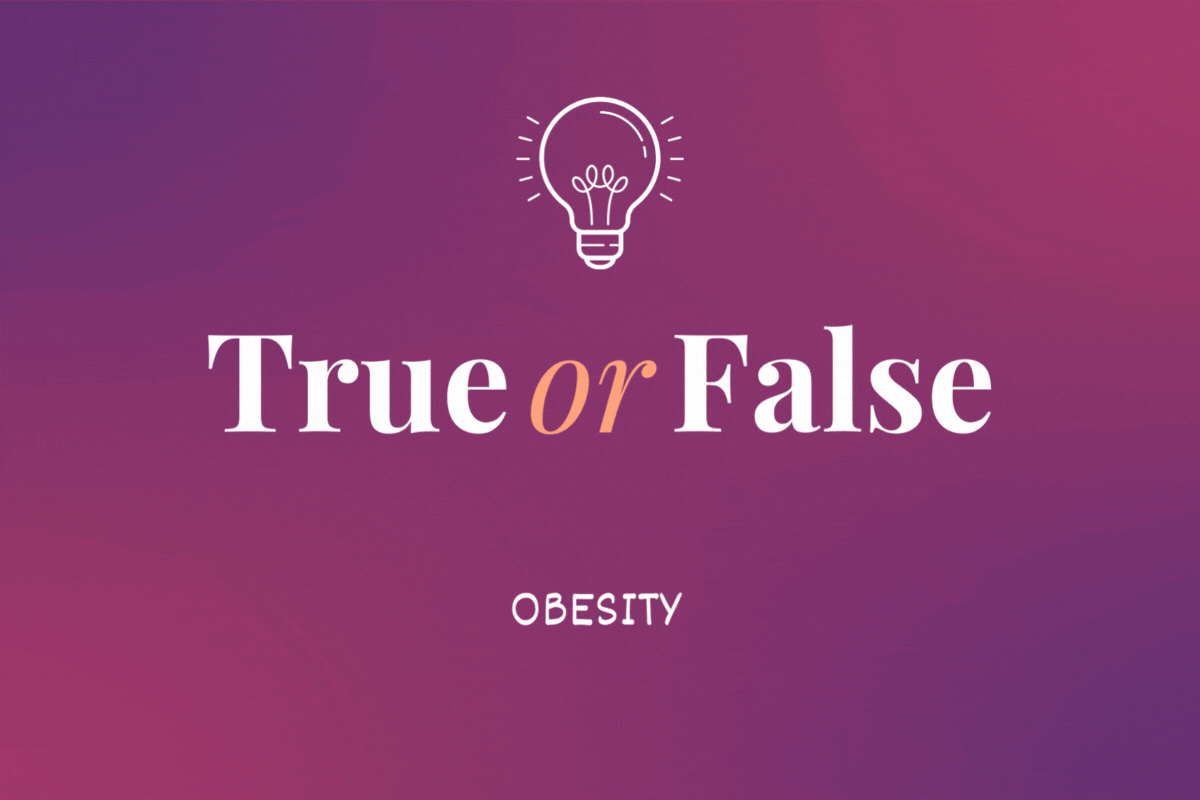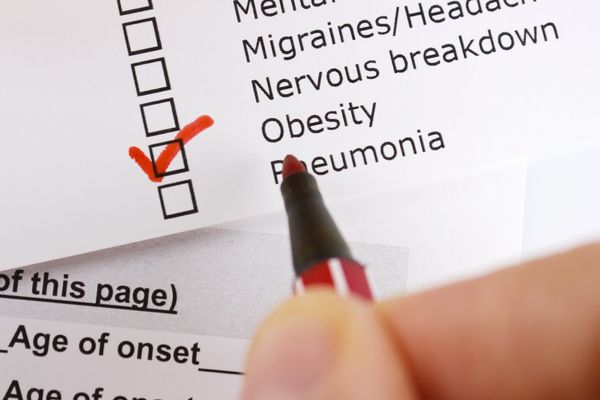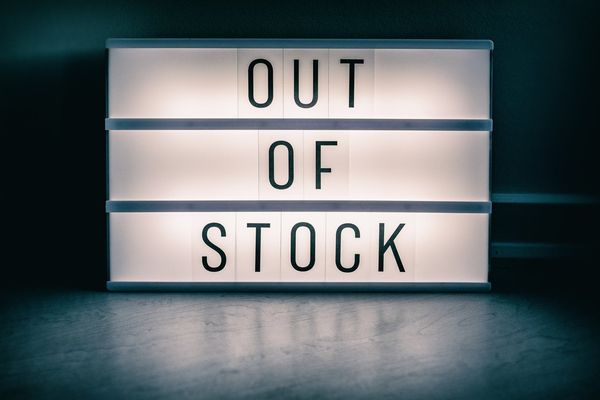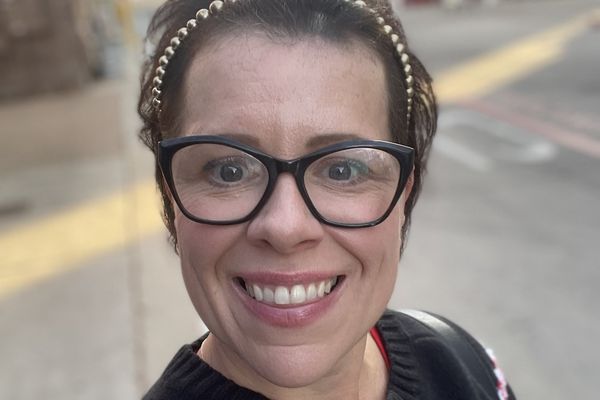This educational resource was created with support from Pfizer.
Please discuss the intersection of obesity and Covid-19.
You know, long before the Covid pandemic happened, we've been struggling globally with an obesity pandemic. Over 40% of U.S adults have obesity, so it's a disease that touches all of our lives. Add on top of that the Covid pandemic, which you know we all just lived through — we know how it affected all of us in so many complicated ways — um, the combined effect of these concurrent pandemics was really profound. The Covid pandemic exposed weaknesses in our healthcare systems and worsened a lot of pre-existing health disparities. I mean this was especially true for people living with obesity with Covid. We saw that obesity was an independent predictor of worse Covid outcomes. People with obesity had about a 50% increased risk of death due to Covid. This became a huge area of research, and it was found that the adipose, or fat tissue, itself was an important player. The Covid virus can infect fat cells, and this in turn stimulates a dysregulated inflammatory response that can result in severe Covid. So everyone from patients with obesity to medical providers, you know, insurance companies, employers realized that we needed to treat obesity as the chronic disease that it is with the effective science-based treatments that we have.
How have people living with obesity been affected by the Covid-19 pandemic?
So this has really shifted as the pandemic has progressed. Early on, I'm sure you all remember when stay-at-home orders first went into effect, all of our lifestyles dramatically changed with stay-at-home orders, everyone was, you know, home more with decreased physical activity and increased sedentary behaviors, like increased screen time, um, and for many people, increased alcohol intake. These behaviors are all associated with weight gain.
There were also very severe food shortages and food insecurity the Covid pandemic caused global disruptions to food supply chains. You think back to the early months of the pandemic and remember the empty supermarket shelves and shortages of toilet paper and other necessities. One of the results of these food shortages was that people ate more highly processed foods —because that was what was available — and packaged foods, um shelf-stable foods rather than fresh fruits and vegetables. We know that eating highly processed foods is associated with weight gain and obesity. On top of all that, many healthcare systems effectively shut down or dramatically reduced their ability to care for patients as a result of the Covid pandemic. Routine preventative healthcare and care for chronic illnesses like obesity suffered. Stress levels were high among everyone and particularly so among people with obesity. Mental health disorders which, you know, even pre-Covid were higher in people with obesity rose in everyone during the pandemic. So because of the link between worse Covid
outcomes and obesity as well as what we as providers were clinically seeing in all of our patients, which was all of this, um, there have been a lot of studies published since the start of Covid that showed how many people were gaining weight and developing or worsening obesity as a result of the Covid pandemic. But it's not all bad news, and weight gain actually wasn't inevitable. At our Medical Weight Management Center, we actually did a study of our patients who were engaged in our comprehensive medical weight management program throughout the Covid pandemic and found that they were actually not able to not only not gain weight but actually many of them lost weight during Covid. So despite all of these physical and psychological and environmental stressors that really promoted weight gain.
Patients who were being treated according to our model of highly personalized care for obesity actually lost weight. This gets back to what I was saying earlier about everyone realizing just how important effective care for obesity is and how much it can improve people's health outcomes.
How are communities of color particularly affected by Covid-19 while living with obesity?
The Covid pandemic worsened many of the pre-existing structural inequities that cause worse health outcomes in communities of color. Communities of color have historically had higher rates of obesity than white communities and this gap widened during Covid.There were so many reasons for this, um, but a few important ones to note are that communities of color have always had more food insecurity and less food access. In some areas, it's simply not possible to obtain nutritious foods like fresh fruits and vegetables, and people instead rely on shelf-stable highly processed foods. You know, as I mentioned already, we know that eating this way — eating less whole foods and more processed foods —contributes to the development of obesity. The disruptions of food supply chains that I just talked about, um, more severely impacted communities of color. Another important factor was access to high quality medical care. This is, again, an issue that predated Covid. Um, both the quality and the number of medical facilities accessible to communities of color have historically been less. During Covid this became an even bigger issue. You might remember seeing on the news of the overcrowded hospitals around the country. During Covid, they were struggling because they didn't have enough personal protective equipment beds or, you know, equipment like ventilators for patients. Many of these most overwhelmed hospitals were in communities of color. Beyond Covid care, care for preventative health and chronic medical conditions like obesity also suffered during Covid. Um, with Covid many people no longer had access to their medical providers. I had so many patients who essentially disappeared from the healthcare system during much of the Covid pandemic for various reasons. You know, some providers were unavailable. They were called to work on Covid units. Patients moved around or relocated because of the pandemic or they were just afraid to come into hospitals or office visits due to fear of exposing themselves. I'm still just now having patients who are kind of re-engaging with medical care, and they're coming in with worse or new chronic medical conditions like obesity, diabetes and high blood pressure. All of these issues which contribute to structural racism were worsened by Covid and contributed to the huge impact of the dual Covid and obesity pandemics in communities of color.
What are some ways people living with obesity can prevent Covid-19?
Prevention strategies for Covid have changed with time as the pandemic and our science has evolved. You know right now, um, some of the most important things for everyone to keep doing are practice good basic hand hygiene— good basic hygiene like hand washing — and follow guidelines for testing and staying at home when appropriate. Beyond that for everyone and especially for people with obesity, it's so important to stay up to date with Covid vaccines and boosters um unfortunately many people especially people of color are still not fully vaccinated against Covid and despite the fact that we know that Covid vaccines reduce the risk of severe Covid. The bivalent booster cuts the risk of having to visit an emergency room urgent care or hospital due to Covid by half for most people. This is especially important for people of color and people with obesity who we know are at increased risk of severe Covid and worse Covid outcomes.
How can we all work together to address stigma when it comes to obesity?
People with obesity have, for a long time, faced a lot of stigma and weight bias both from the general public as well as unfortunately for medical provider. I think the most important thing for combating stigma is understanding that obesity is a chronic disease and is not a personal choice or some failure of willpower. All patients with obesity should have access to science-based comprehensive personalized medical treatment. I tell all of my patients this when we first meet, and then kind of time and time again as we work together. So many of my patients come to me frustrated with years or decades of struggling with their weight, of trying countless strategies to try to lose weight without much success and blaming themselves for this perceived failure. You have to remember that obesity is a really unique disease in that it's visible. If you think about other chronic medical conditions, you know nobody can tell by looking at you if your diabetes or your blood sugar is out of control, your blood sugar is too high, or your blood pressure is higher than it should be. Because of what society's been telling people with obesity and because it's so visible, people with obesity can feel so much shame for their disease, but we know that obesity is the result of complex pathophysiology that's designed to protect the body against what our bodies view as starvation and it's only when we address this physiologic dysregulation and move away from shame and blame that we can effectively and compassionately treat the disease of obesity.
How do you discuss the risk of Covid-19 with your patients living with obesity?
I saw in my patients that the stress and anxiety brought about by Covid persisted for longer in people with obesity even after, you know, some of the stay-at-home orders and social restrictions had relaxed. Given what we know about the link between having obesity and more severe Covid, this makes sense. Many people with obesity were terrified of what would happen to them if they got Covid. So many of my patients told me that they were afraid to go out into the world. I'm afraid to go to the supermarket to restaurants to work to ride public transit because they knew that they were at increased risk of complications if they got Covid.
While the risk is higher for people living with obesity, um, there are also many powerful tools that we have to help reduce that risk. A lot of them we've discussed today already. So, practicing good hygiene, staying current with vaccinations and boosters, and working to manage the chronic medical condition that is obesity. I tell my patients that as long as they're doing these things. they're doing everything that's within their control to reduce their risk and keep themselves healthy. Um, there have actually been several studies that have suggested that in people with obesity, weight loss via different tools including lifestyle changes, bariatric surgery, is actually protective against severe Covid compared to individuals with obesity who have not lost weight. Given what we know about the role that fat cells play in the development of severe Covid this intuitively makes sense, but it's an ongoing area of research.
What can people living with obesity do if they have Covid symptoms or test positive for Covid?
You know it's so important for everyone to be aware of the currently available treatments for Covid and especially so for people with obesity. Similar to vaccines, our current treatments reduce the risk of developing severe Covid, including hospitalization and death. These treatments are intended for use in people at increased risk of developing severe Covid, and this includes people with obesity. So, if you test positive for Covid, you should definitely speak with your healthcare provider about your treatment options. Um, it's important to do so early, as soon as possible after symptoms begin or testing positive because a lot of these treatments are intended for use and most effective if used within the first five days of symptom onset.
- The Intersection of Long Covid and Obesity ›
- COVID-19 Reveals How Obesity Harms the Body in Real Time, Not Just Over a Lifetime ›
- The Connection Between Obesity and COVID-19 ›
- Obesity Puts You at Higher Risk for Severe Illness from Covid-19 ›
- Obesity, Racism and Covid: A Deadly Combination ›
- Covid and Obesity: How to Reduce Risk Factors ›
- How to Ask Your Employer for Obesity Care Insurance Coverage - HealthyWomen ›


